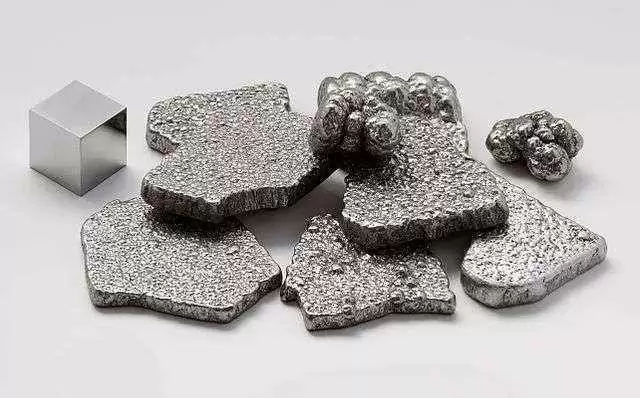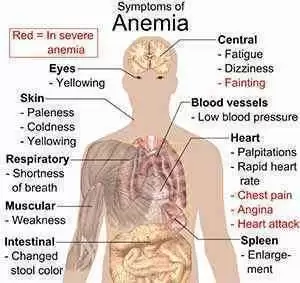Celiac.com 08/18/2009 - Many of you know that DQ8 is one of the two major genes which may lead to celiac disease. You may also know that Open Original Shared Link. What you may not know is that DQ8 may be the direct cause of these other autoimmune diseases, for these autoimmune diseases are found in increased incidence not just in celiac disease, but also with DQ8 itself.
What follows is a list I have compiled showing the various diseases that are found in increased frequency among people who have the DQ8 gene (DQB1*0302). I will show the reference number next to each, and the corresponding references will appear below:
- Celiac disease (1)
- Scleroderma (2)
- Rheumatoid arthritis (1)
- Autoimmune thyroiditis (3)
- Pemphigus (4)
- Lupus (6)
- Pemphigoid (5)
- Focal myositis (7)
- Multiple sclerosis (8)
- Myasthenia gravis (1)
- Insulin dependant latent autoimmune diabetes of adults and adult Type 1 diabetes (9)
- Type 1 juvenile diabetes (1)
- Sjogren’s syndrome (10)
- Addisons’s disease (11)
- Complex regional pain syndrome with dystonia (12)
- Latex allergy (13)
Celiac.com Sponsor (A12):
References:
- Open Original Shared Link
- Autoantibodies to fibrillarin in systemic sclerosis (scleroderma). An immunogenetic, serologic, and clinical analysis. Frank C. Arnett, MD, John D. Reveille, MDet al. See abstract at Open Original Shared Link.
- A strong association between thyrotropin receptor-blocking antibody- positive atrophic autoimmune thyroiditis and HLA-DR8 and HLA-DQB1*0302 in Koreans. Cho, JH Chung, YK Shong, YB Chang, H Han, JB Lee, HK Lee and CS Koh. See abstract at Open Original Shared Link.
- Association between HLA-DRB1, DQB1 genes and pemphigus vulgaris in Chinese HansBy Zhou SH, Lin L, Jin PY, Ye SZ. See abstract at: Open Original Shared Link.
- Polymorphisms of HLA-DR and -DQ Genes in Japanese Patients with Bullous Pemphigoid. By Okazaki A, Miyagawa S, et al. See abstract at: Open Original Shared Link.
- HLA-DRB1*03 and DQB1*0302 associations in a subset of patients severely affected with systemic lupus erythematosus from western India. By U Shankarkumar, K Ghosh, S S Badakere, D Mohanty. See abstract at: Open Original Shared Link.
- HLA typing in focal myositis. By Kenji Sekiguchi, Fumio Kanda, Kenichi Oishi, Hirotoshi Hamaguchi, Kenichiro Nakazawa, Nobuya Maeda, Hiroyuki Ishihara and Kazuo Chihara. See abstract at: Open Original Shared Link.
- HLA-DRB1*1501, -DQB1*0301, -DQB1*0302, -DQB1*0602, and -DQB1*0603 alleles are associated with more severe disease outcome on MRI in patients with multiple sclerosis. By Zivadinov Robert; Uxa Laura et al. See abstract at: Open Original Shared Link.
- Similar Genetic Features and Different Islet Cell Autoantibody Pattern of Latent Autoimmune Diabetes in Adults (LADA) Compared With Adult-Onset Type 1 Diabetes With Rapid ProgressionBy Nóra Hosszúfalusi, MD, PHD, Ágnes Vatay, MD1, et al. See abstract at Open Original Shared Link.
- Specific amino acid residues in the second hypervariable region of HLA- DQA1 and DQB1 chain genes promote the Ro (SS-A)/La (SS-
 autoantibody responses. ByJD Reveille, MJ Macleod, K Whittington and FC Arnett. See abstract at Open Original Shared Link.
autoantibody responses. ByJD Reveille, MJ Macleod, K Whittington and FC Arnett. See abstract at Open Original Shared Link. - Analysis of extended human leukocyte antigen haplotype association with Addison’s disease in three populations. ByGombos, Hermann, et al. See study at: Open Original Shared Link.
- HLA-B62 and HLA-DQ8 are associated with Complex Regional Pain Syndrome with fixed dystonia. By Rooij, Gosso, et al. See study at: Open Original Shared Link.
- HLA-DQ8 and the HLA-DQ8-DR4 haplotype are positively associated with the hevein-specific IgE immune response in health care workers with latex allergy. By Rihs Hans-Peter; Chen Zhiping; Ruëff Franziska; et al. See abstract at: Open Original Shared Link






Recommended Comments